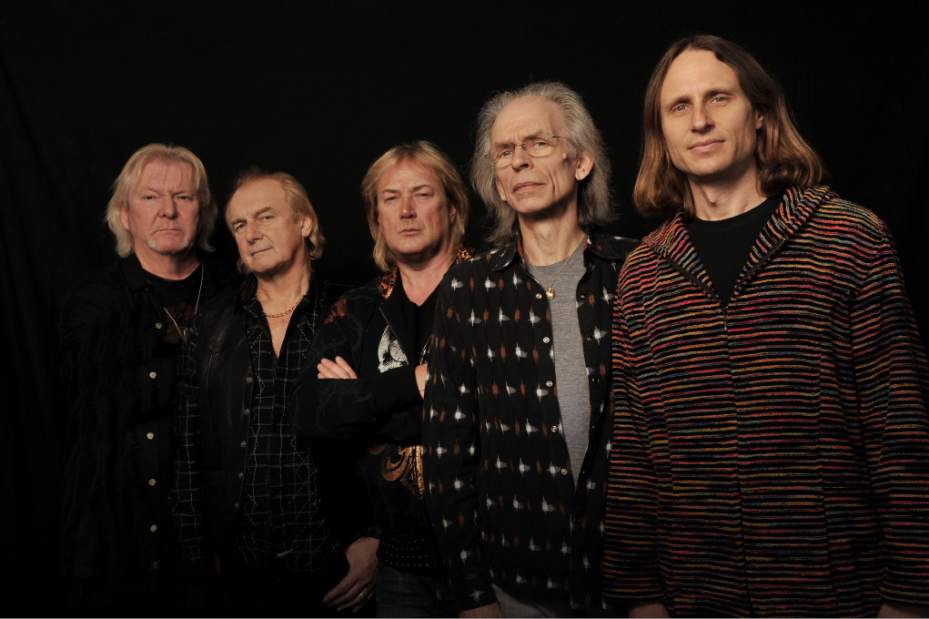Flexibility key to success of Yes
Nearly 45 years after saying “Yes!” to progressive, symphonic-style rock music, British band Yes still rolls strongly, but through plenty of changes.
Although the band's music has earned it many fans since the '70s and '80s, flexibility seems to play a key role in the band's longevity. Yes is a “mysteriously determined band” that has such a long heritage, partially because of its revolving door, with numerous member changes, says guitarist Steve Howe, who still lives in England.
Since Yes began in 1968, the band has had four guitarists, two drummers, and more than six keyboardists. Yes is on its fourth singer: Jon Davison, who joined the band in February because of lead vocalist Benoit David's illness. Bassist Chris Squire is the only original member remaining in the five-man band, although Howe joined in 1970, shortly after Yes was formed.
“When you put all that together, that's the answer to your question: We change,” Howe says about the band's long lifespan, minus a two-year disband in 1981 and a four-year hiatus in 2004. “We're like an orchestra; an orchestra can change membership.”
Howe and Yes keyboardist Geoff Downes also split their time between Grammy Award-winning Yes, which is coming to the Carnegie Library Music Hall in Munhall on Tuesday, and Asia, another '80s British rock band that is coming to the music hall Oct. 31 for its 30th anniversary tour. Howe also has nurtured a solid solo career outside of his bands, and released his 19th solo album in 2010.
Yes has sold more than 50 million albums, and put out a studio album — “Fly From Here,” its first studio album in a decade — last year. The album worked out well, but Howe doesn't know if Yes — known for hits including “Owner of a Lonely Heart,” “Leave It,” “Long Distance Runaround,” and “Starship Trooper” — will make another new studio album in the future.
Focusing on continual touring and live performances has helped Yes continue to thrive and connect with fans in a personal way, Howe says. Stage charisma and energy make live shows entertaining, but Howe prefers to express them in a less flamboyant way than some bands do. He's not one to put on a show that's reliant on stage movement, theatrics and “that kind of razzmatazz.”
“It's a good thing — the audience likes to see the whole package,” Howe says about live shows. But, “Kneeling at the edge of the stage is cringe-worthy ... the music police should come on. I like to move around ... but certainly I'm not going to be wiggling on the (back) with my legs in the air.”
Kellie B. Gormly is a staff writer for Trib Total Media. She can be reached at kgormly@tribweb.com or 412-320-7824.

